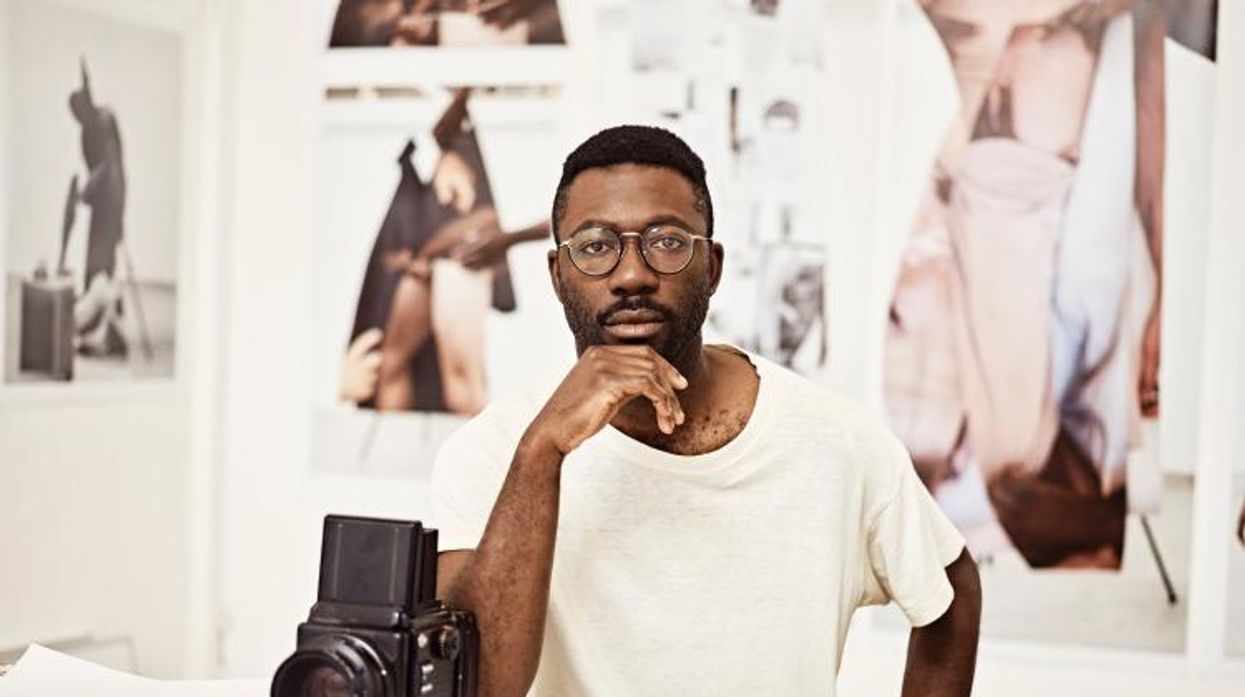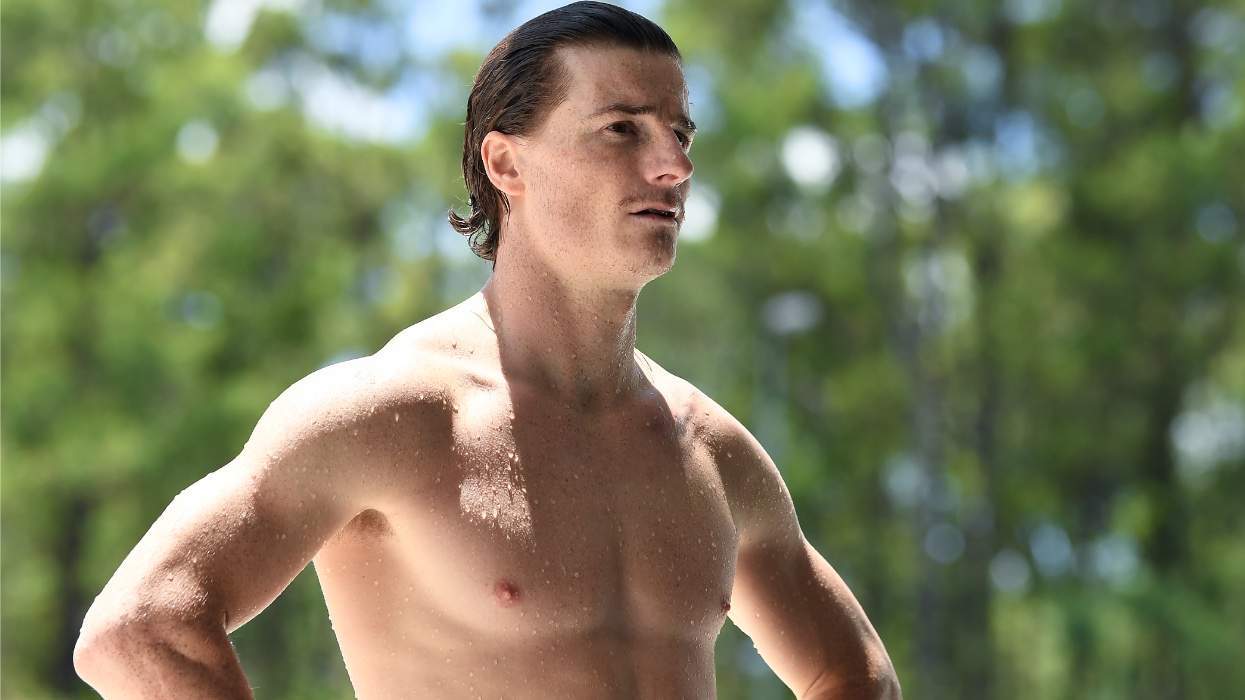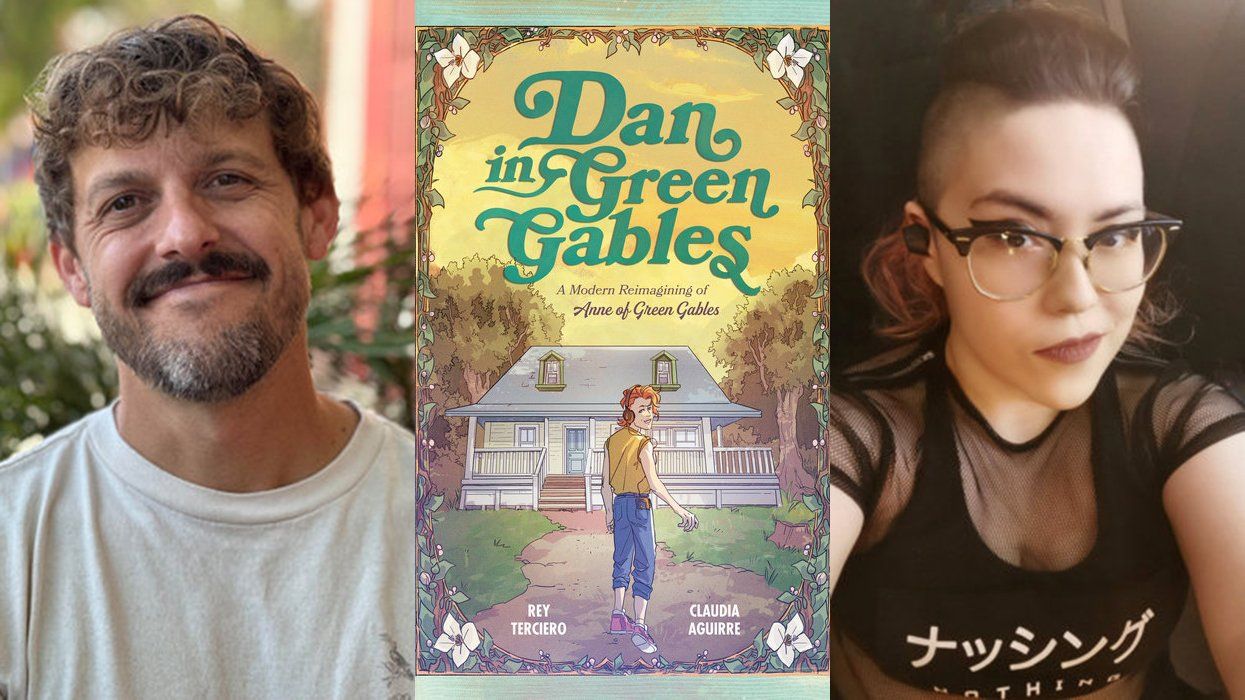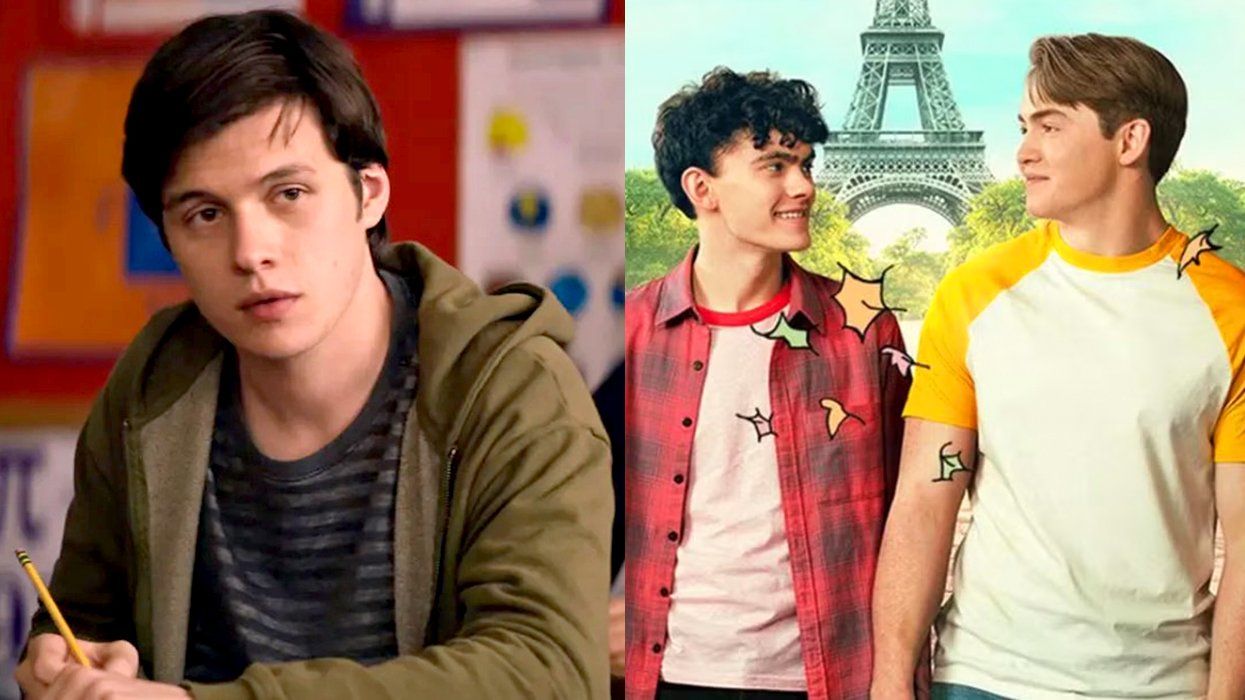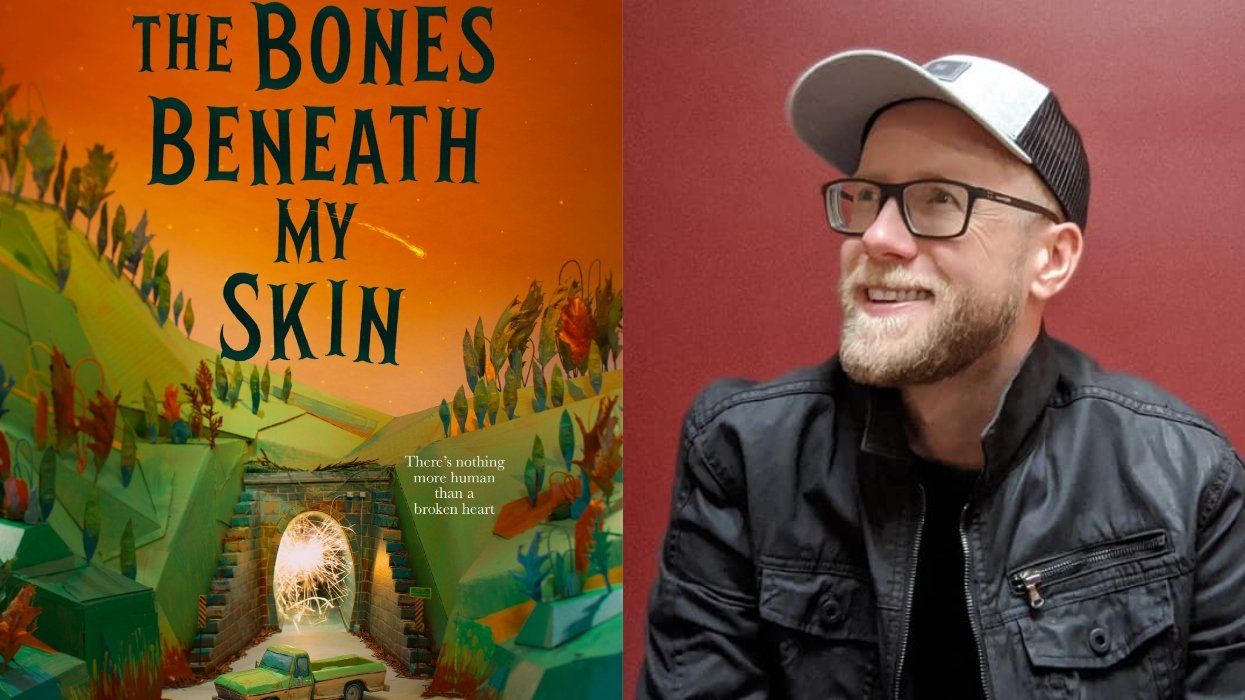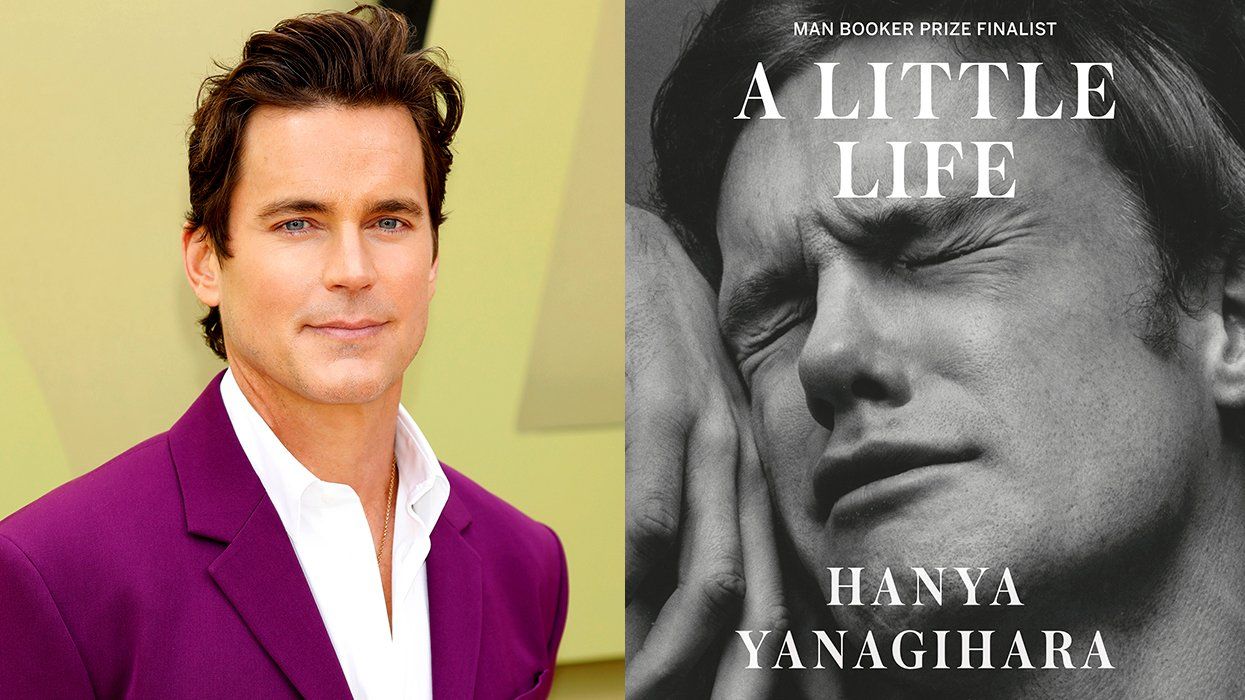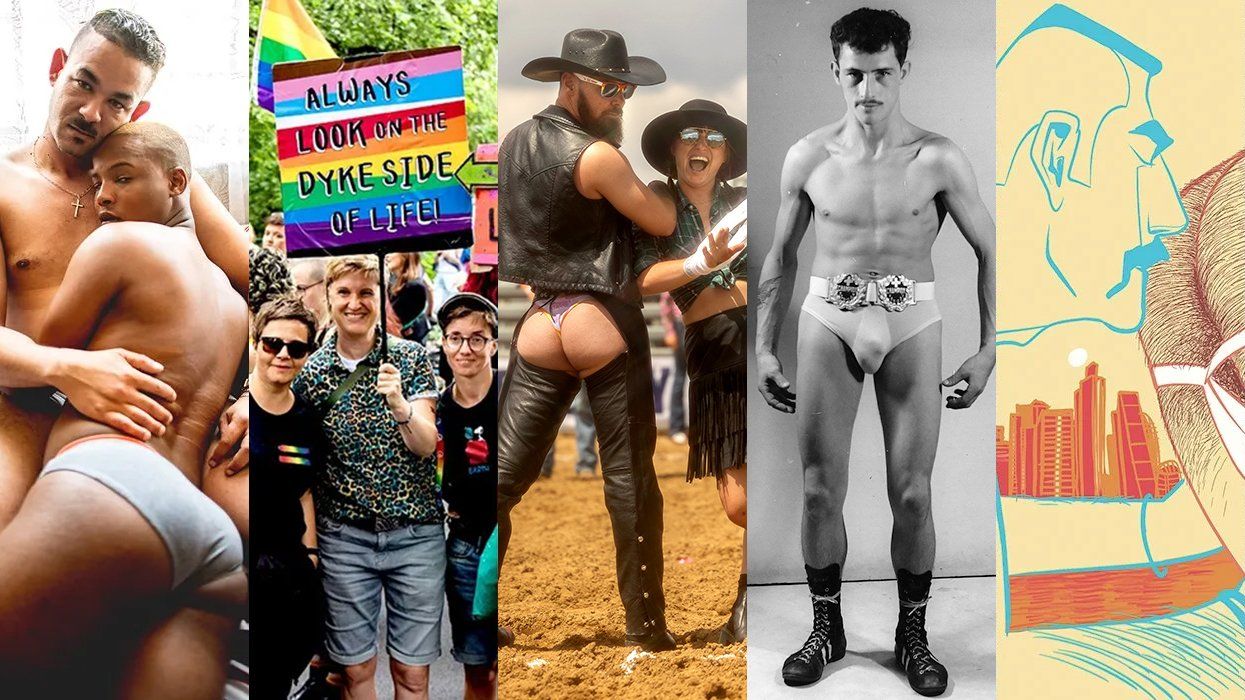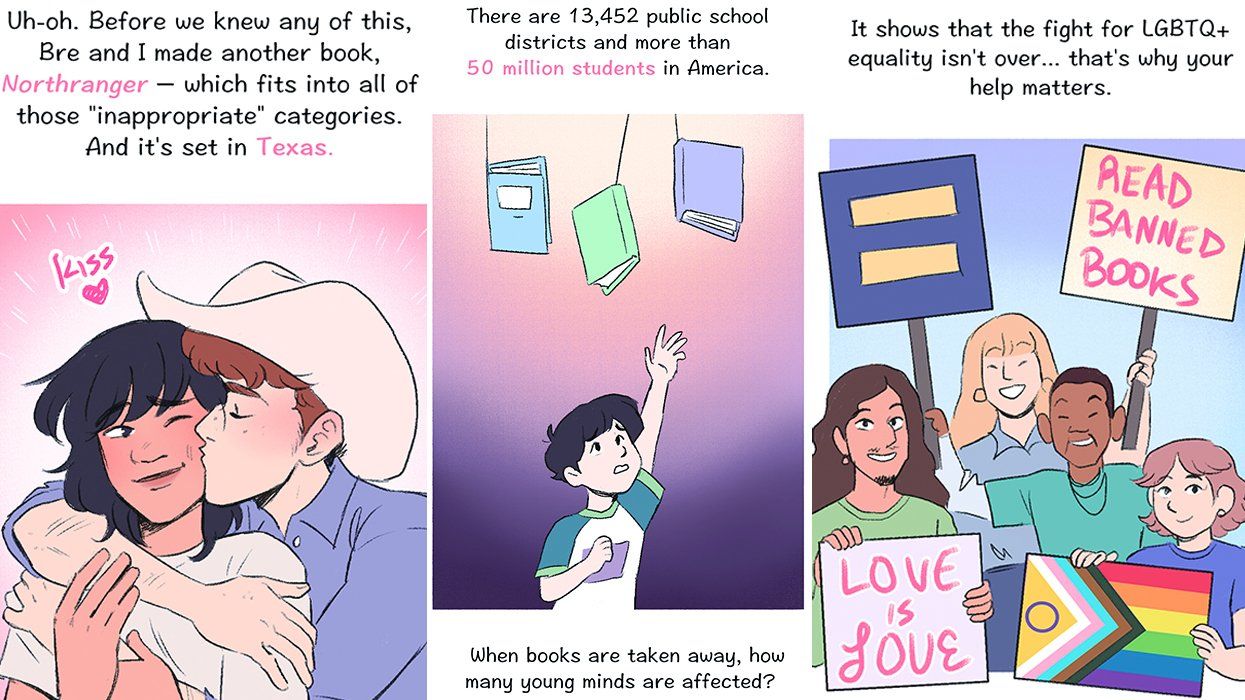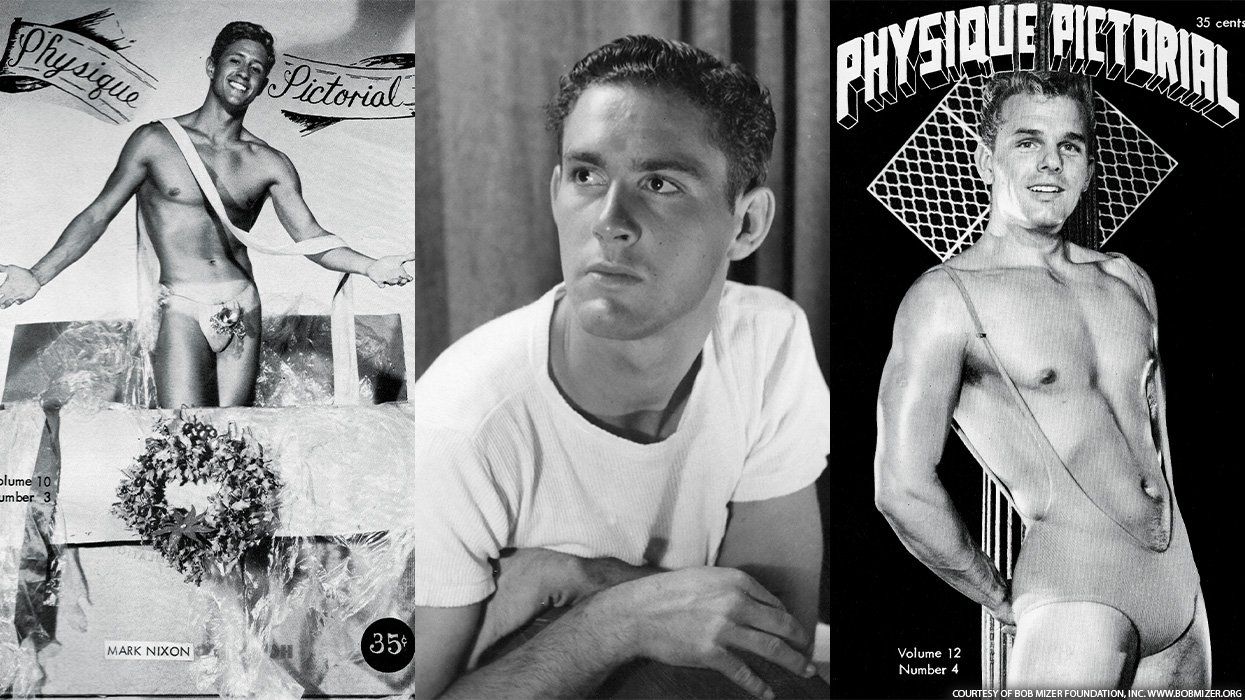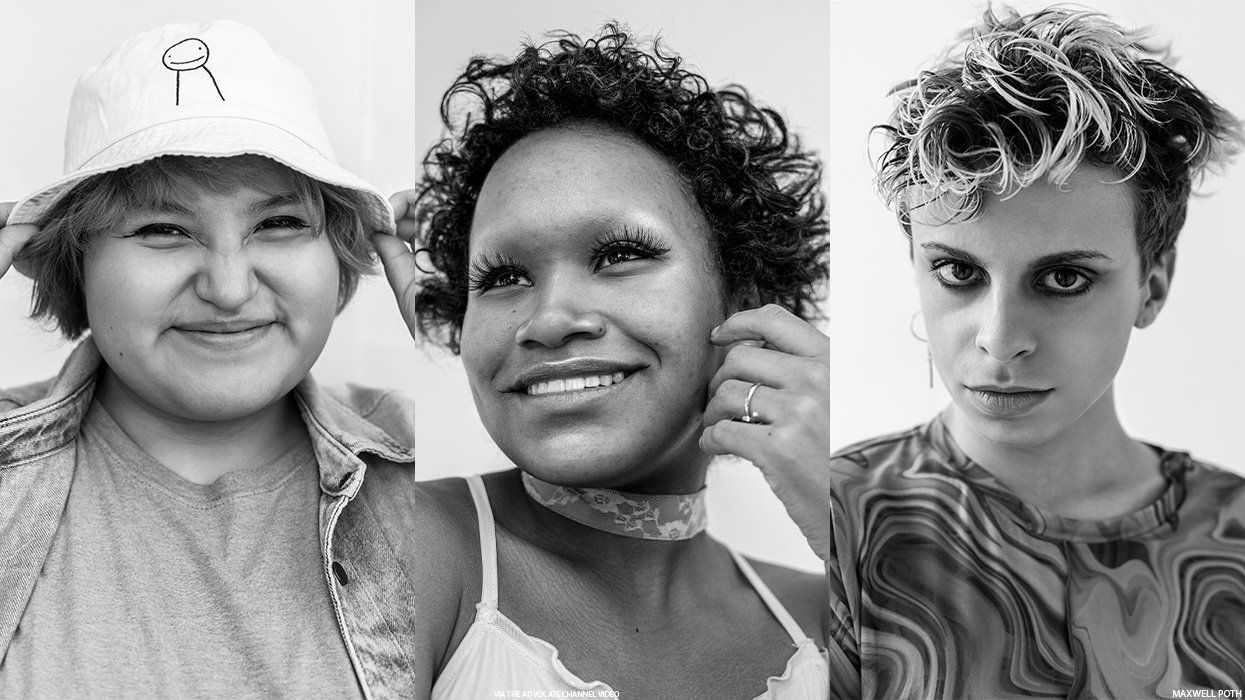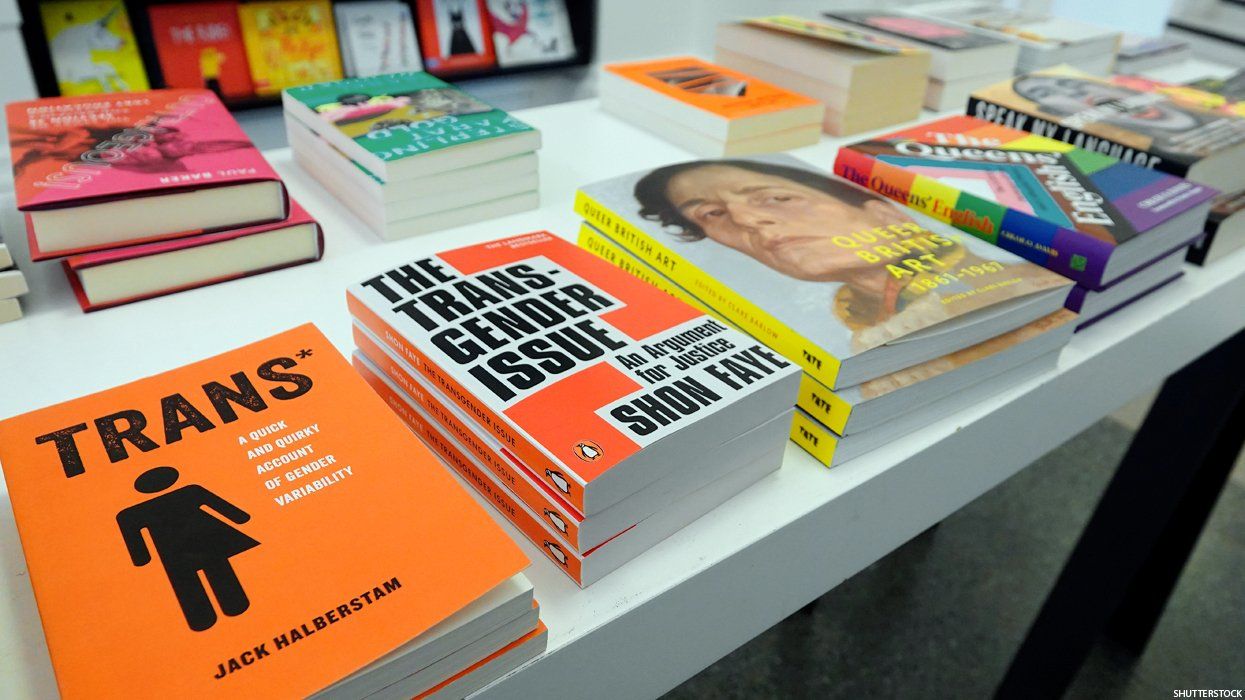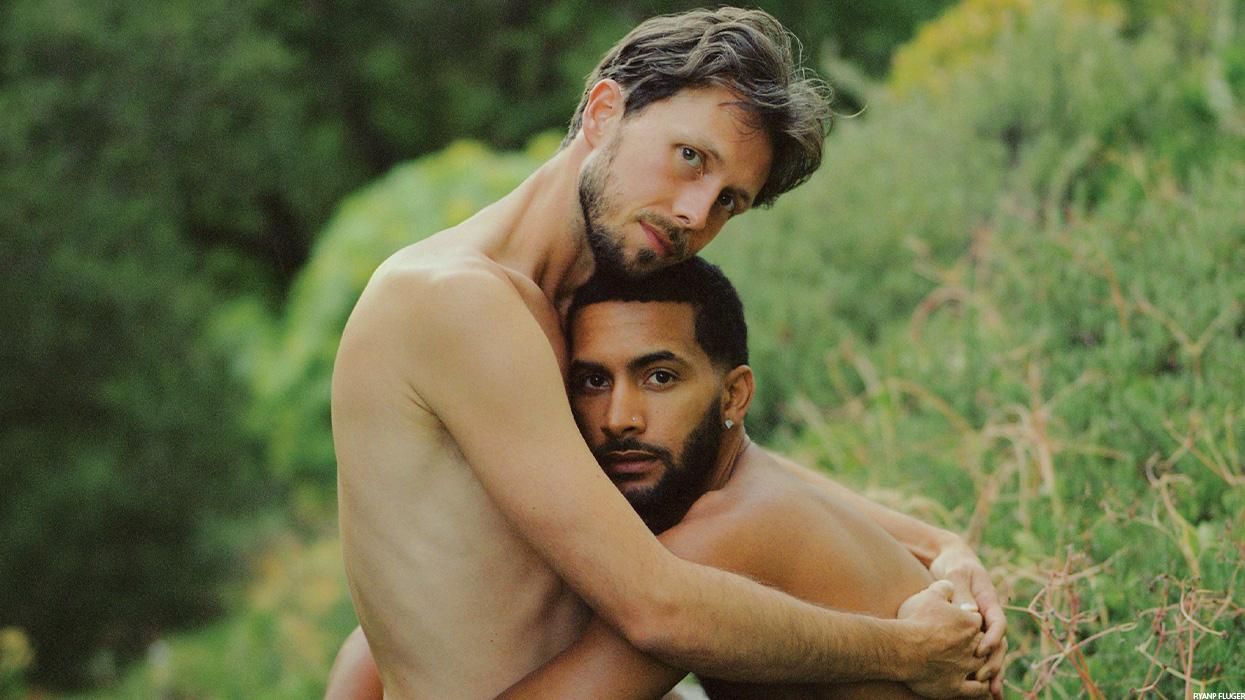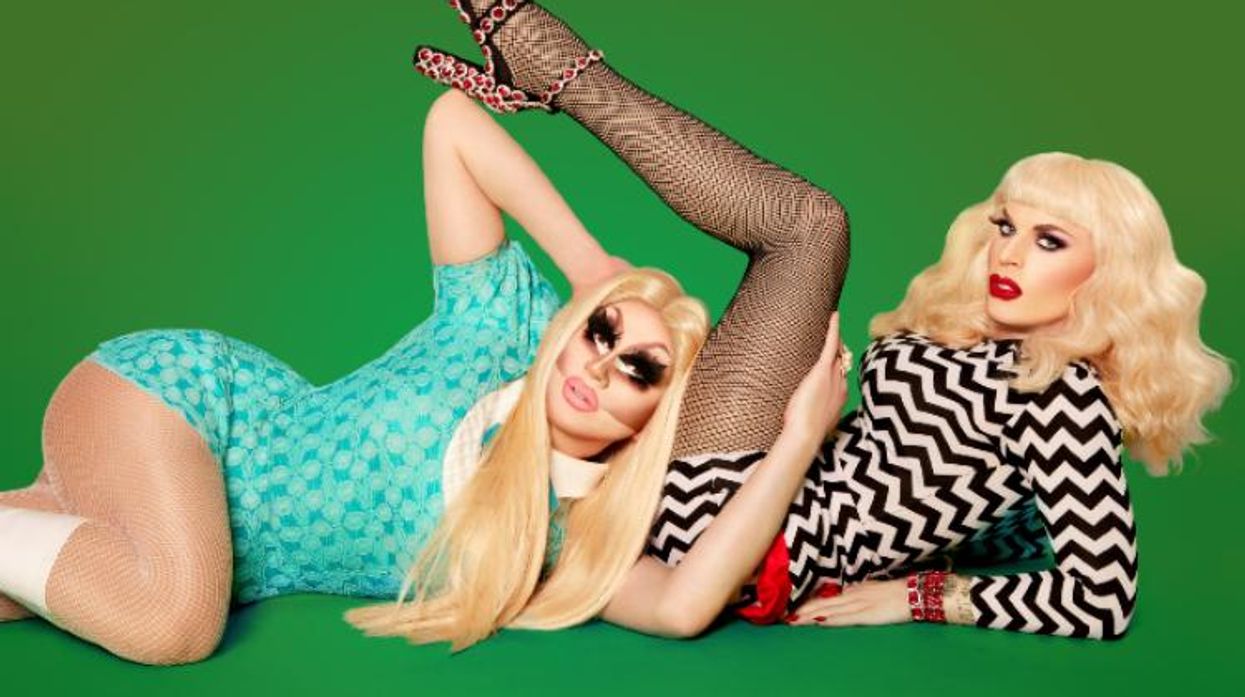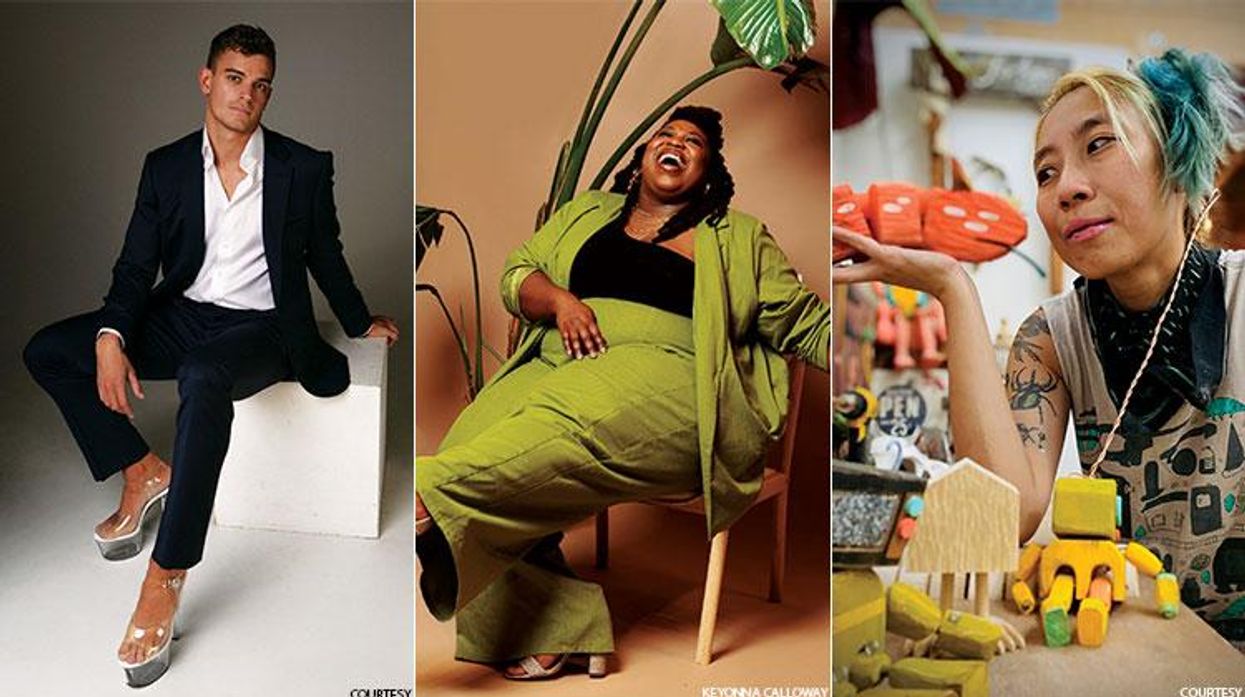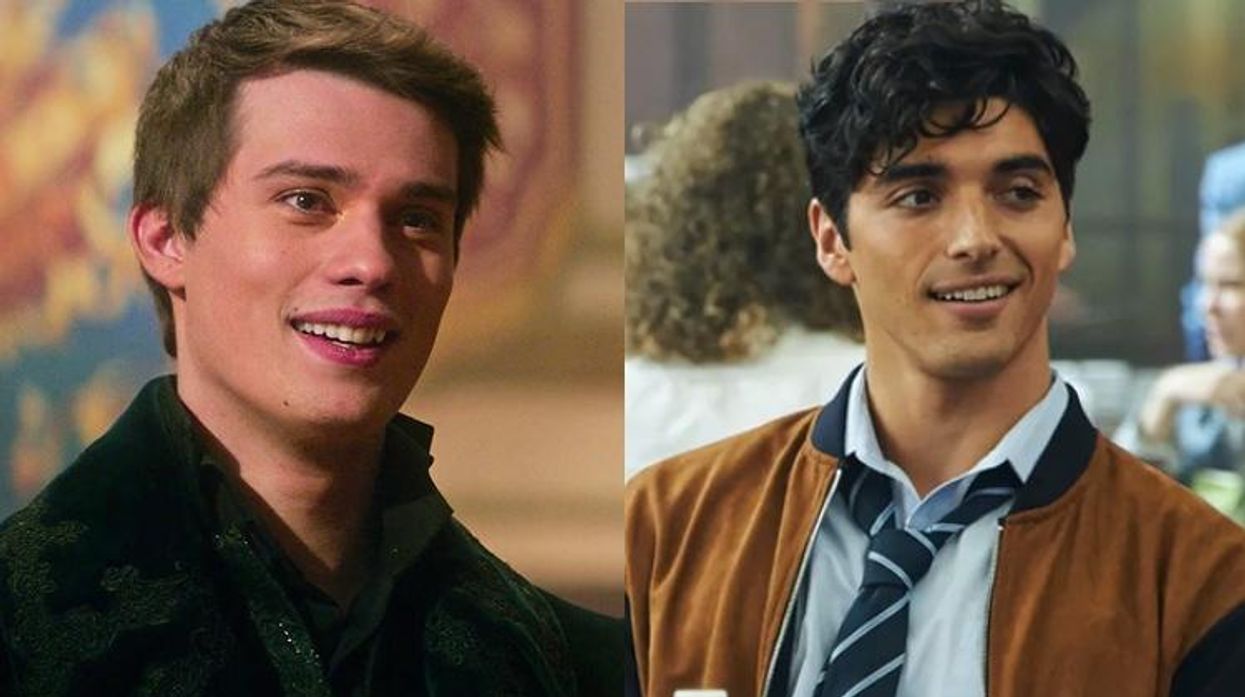Paul Mpagi Sepuya's refreshingly left-field approach to portraiture owes debts to eclectic sources: the raw sexuality of Robert Mapplethorpe; Wolfgang Tillmans's deceptively casual-seeming celebrations of youth and gay eroticism; and Anne Collier's meta-fixations on the process of image-making itself. Sepuya is a master of the unexpected crop, taking a delight in breaking the traditional rules of composition.
Related | Jake Ziemann's Willfully Goofy Moving Ceramics
We often see mere fragments of bodies: In Figure (2016), a well-toned gentleman grips an ample erection, the photograph abruptly terminating at his neck and calves. "It's all about the frame, the forces at the margins," Sepuya says. "It's about not letting the viewer slide too quickly into the subject, and being held for just a bit longer on the thing that's happened: the photograph."
Who exactly are the guys in these images--occasionally staring down the camera like a stranger across the bar? "They're friends, which is fundamental," the artist says. "They're people who inhabit overlapping sites of social, sexual, and creative exchange. I'm interested in a kind of keyed-in recognition, from the dance floor or darkroom to the subway platform or sidewalk the next day, or week. My work is about two things: extended intimacy and mutually affirming objectification."
Related | Amir Nikravan's 'Rational' Freestanding Paintings
The works in "Figures, Grounds and Studies," Sepuya's solo show this spring at Yancey Richardson Gallery in New York, neatly encapsulate what drives him to make images. "The project is broken down into the basic operations of photography: choice of subject and the desire to look, performance and staging, cropping, the resulting image, and how it's used," he says. "I am insisting that the fundamentals of photography--and its entire history as a technology and social construct--are inseparable from the construction of our sexual selves."
Like what you see here? Subscribe and be the first to receive the latest issue of Out. Subscribe to print here and receive a complimentary digital subscription.


